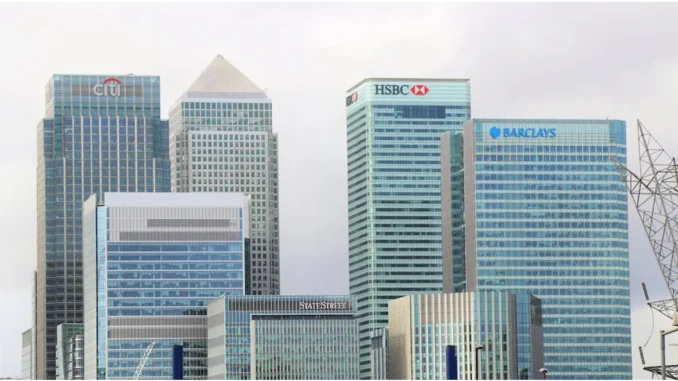
Summary
In a recent interview with Wego Travel, finance expert Emily Richards shared her insights on obtaining bank statements for a UK visa application. Here are the five key takeaways:
1. Understanding Visa-Specific Requirements: Different types of UK visas require different minimum balances and proof durations.
2. General Rules for Bank Statements: All statements must include specific details and be from a regulated account.
3. Electronic Statements Are Acceptable: The UK government accepts electronic statements, simplifying the process.
4. Family Member Requirements: Partners and children have specific financial requirements that must be met separately.
5. Alternative Proofs: Other forms of financial sustainability proof are also acceptable, such as savings and investment accounts.
Main Post
Navigating the Path to a UK Visa: Emily Richards’ Journey
As a seasoned traveller and finance expert, Emily Richards has navigated her fair share of visa applications. When it came time to apply for a UK visa, she knew the process could be meticulous, especially concerning the financial proof required. I had the pleasure of sitting down with Emily to discuss her recent experience.
“First and foremost,” Emily began, “you need to understand that the bank statement requirements vary depending on the type of UK visa you are applying for. Whether it’s a work visa, visitor visa, or business visa, each one has its own set of financial requirements.”
Understanding Visa-Specific Requirements
Emily highlighted that for most visas, there is a minimum balance that must be held in the applicant’s account for at least 28 consecutive days. “For example,” she explained, “if you’re applying for a Skilled Worker visa or a Creative Worker visa, you need to have a minimum balance of EUR 1,270. This amount must be available in your account for 28 days straight.”
This requirement ensures that applicants have sufficient funds to support themselves upon arrival in the UK. “The 28-day period must end within 31 days of your visa application date,” Emily added. “So, timing is crucial.”
General Rules for Bank Statements
All bank statements must include specific details to be considered valid. Emily emphasised the importance of these details: “Your statement must show the date it was issued, your name, the bank’s name, and the balance on the account. If any of these details are missing, your statement could be rejected.”
Moreover, the bank account must be regulated by the financial regulatory body in the applicant’s country. “And don’t forget,” Emily cautioned, “the account must use electronic record-keeping. Manual records won’t cut it.”
Electronic Statements Are Acceptable
One of the more convenient aspects of the UK visa application process is that electronic bank statements are acceptable. “The UK government has made things a bit easier by accepting electronic statements,” Emily noted. “As long as they include all the necessary information, you don’t need to worry about getting them stamped by the bank.”
This modern approach streamlines the process, allowing applicants to focus on gathering other required documents.
Family Member Requirements
Emily also touched on the requirements for applicants with dependents. “If you’re planning to bring your partner or children with you, there are additional financial requirements,” she explained. “For instance, you’ll need EUR 285 for your partner, EUR 315 for one child, and EUR 200 for each additional child.”
These amounts must also be held for the same 28-day period. “So, if you’re applying with your partner and one child, you’ll need an additional EUR 600 on top of the EUR 1,270 required for yourself,” Emily elaborated. “It’s essential to plan your finances accordingly.”
Alternative Proofs
While bank statements are the most common form of financial proof, Emily pointed out that other types of accounts are also acceptable. “You can use statements from savings accounts, pension savings, or even investment accounts,” she said. “The key is that they must include the same required details and be regulated.”
This flexibility can be particularly beneficial for applicants with diverse financial portfolios. “Just make sure the funds are readily accessible,” Emily advised. “The UK government may conduct verification checks with your bank, and if they can’t verify the funds, your application could be refused.”
Obtaining Your Bank Statements
When asked about the process of obtaining bank statements, Emily smiled. “It’s simpler than you might think,” she assured. “Most banks offer online services where you can easily download your statements. If you prefer a physical copy, you can visit your bank branch and request it.”
She also noted that some banks might offer additional services, such as notarisation, if applicants feel it necessary. “But remember,” Emily reiterated, “the UK government doesn’t mandate stamping, so electronic versions should suffice.”
Final Thoughts
Emily’s insights provided a clear roadmap for anyone looking to apply for a UK visa. “Preparation is key,” she concluded. “Understand the specific requirements for your visa type, ensure all necessary details are included in your bank statements, and keep an eye on the timing. With these steps, you’ll be well on your way to securing your UK visa.”
As our conversation ended, I couldn’t help but feel confident that with experts like Emily Richards guiding us, the complex process of visa applications becomes far more navigable.
By Marcia Spencer


Be the first to comment